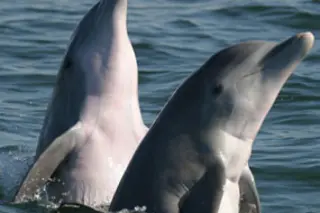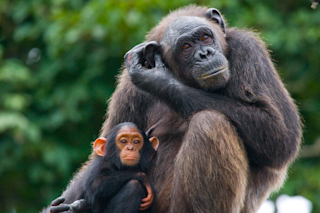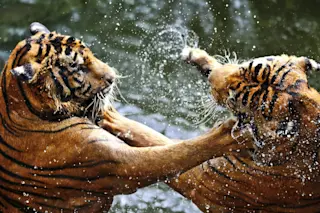Dolphins always seem to find the most bizarre ways to make the headlines. In their most recent adventure, it appears that a dolphin named Moko has come to the rescue of two beached pygmy whales—by "communicating with the whales and leading them to safety," according to the BBC. Malcolm Smith, who was at the scene, said "there was obviously something that went on because the two whales changed their attitude from being quite distressed to following the dolphin quite willingly and directly along the beach and straight out to sea." This extraordinary tale of cetacean correspondence was also covered by CNN, The LA Times, The Daily Telegraph, The Daily Mail, and various Australianpapers. So what happened out there between Moko and the whales? Did she really communicate with them? If so, do these animals share a language—dolphinese perhaps? According to the Dolphin Communication Project, dolphins certainly communicate—they convey information using ...
Dolphin Saves Beached Whales Using… Language of the Sea?
Explore dolphin communication through the incredible rescue by Moko the dolphin, leading beached pygmy whales back to safety.
More on Discover
Stay Curious
SubscribeTo The Magazine
Save up to 40% off the cover price when you subscribe to Discover magazine.
Subscribe













